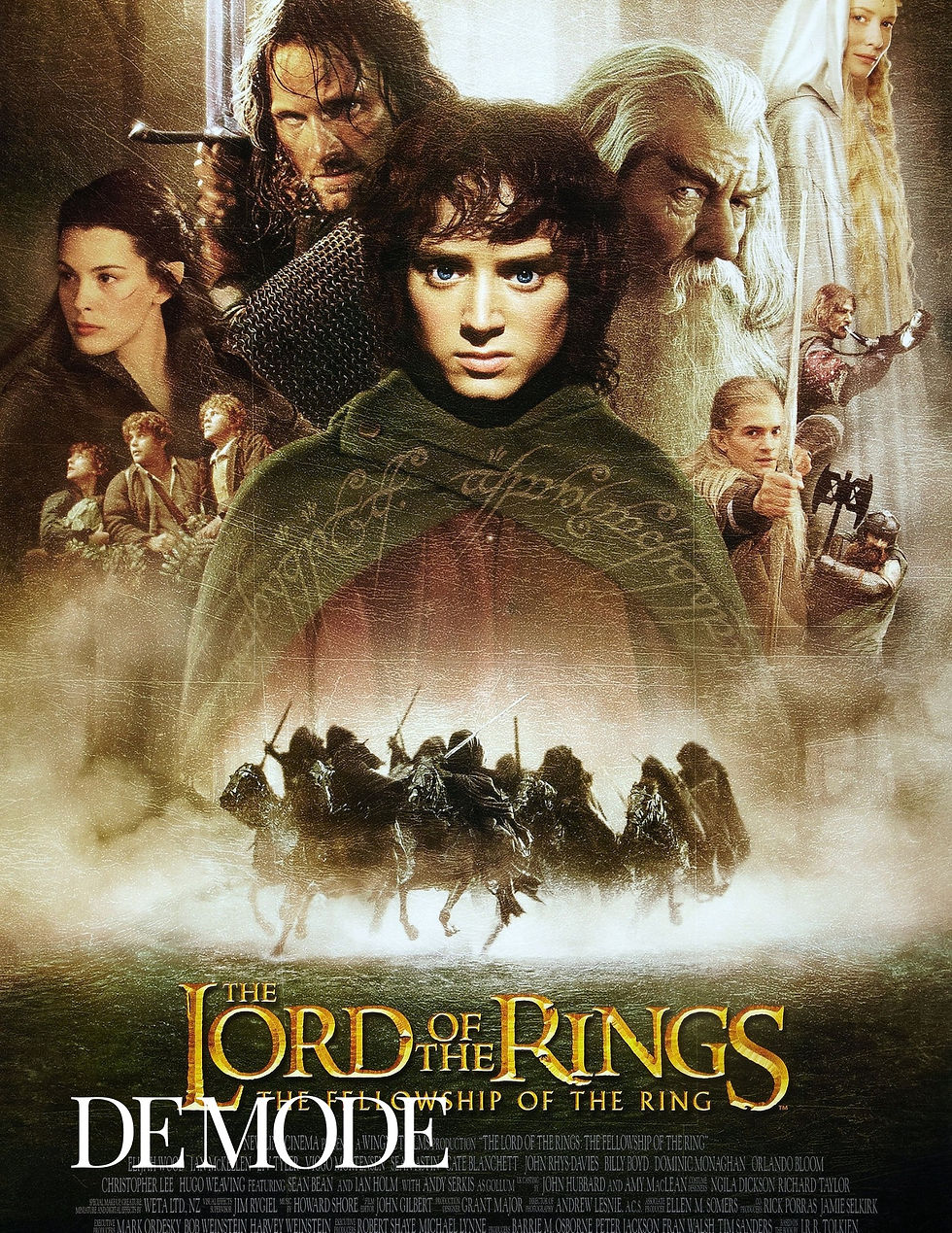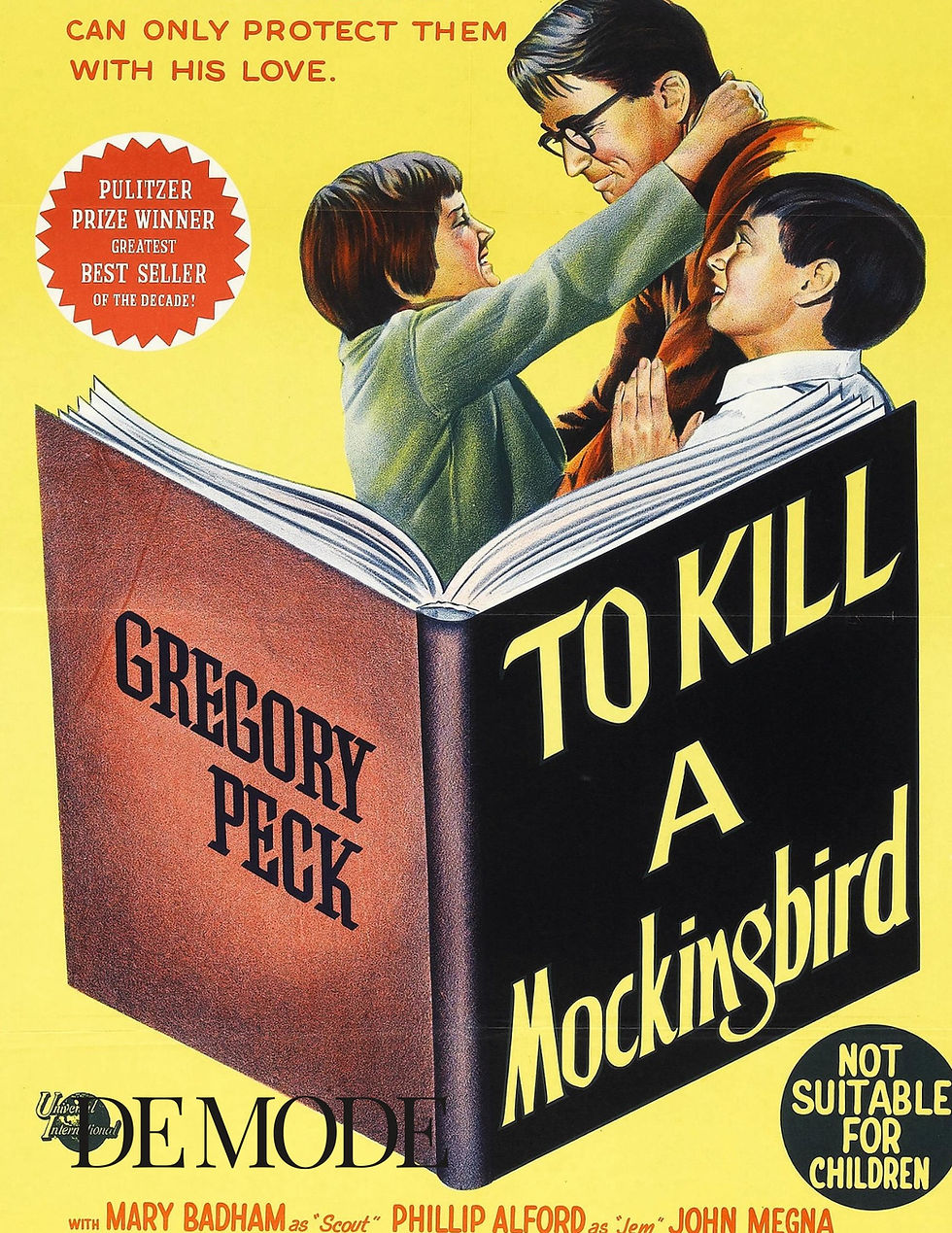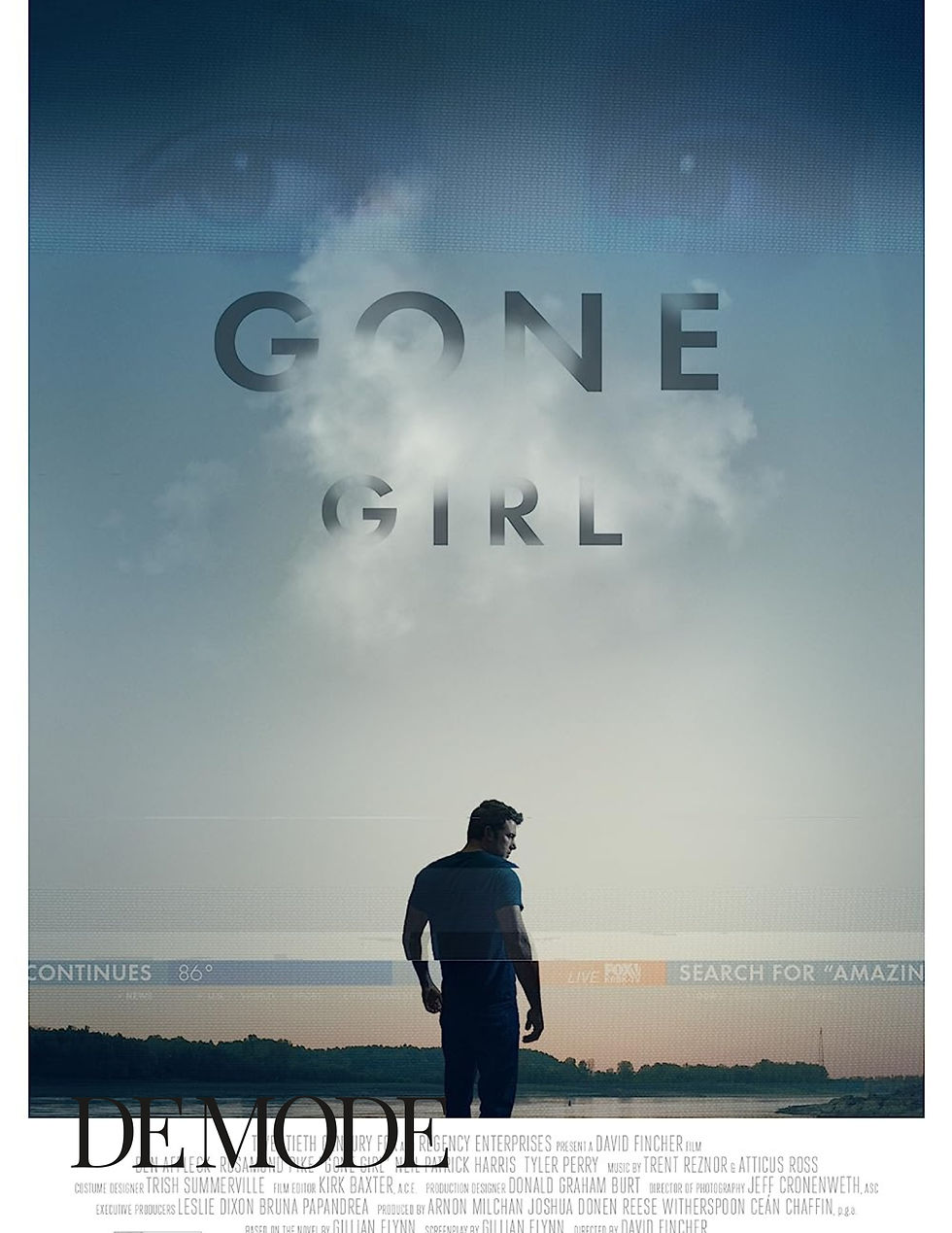"FROM PAGE TO SCREEN - ADAPTING BELOVED BOOKS INTO SUCCESSFUL FILMS": DE MODE GLOBAL
- DE MODE

- Jul 12, 2023
- 3 min read
ORIGINALLY PUBLISHED IN DE MODE
Article Published on: 12TH JULY 2023 | www.demodemagazine.com
The process of adapting a beloved book into a successful film is a delicate task that requires capturing the essence of the source material while embracing the unique language of cinema. When done right, these adaptations can bring cherished stories to life, transporting audiences to new worlds and reigniting their love for the written word. In this essay, we will explore the art of adapting books into films by examining three successful examples that have captivated both book lovers and moviegoers alike.
"The Lord of the Rings" Trilogy - J.R.R. Tolkien: J.R.R. Tolkien's epic fantasy series, "The Lord of the Rings," is a monumental literary work beloved by millions worldwide. The cinematic adaptation, directed by Peter Jackson, successfully translated the sprawling narrative onto the big screen. Released between 2001 and 2003, the trilogy captured the grandeur, depth, and emotion of Tolkien's world, transporting audiences to the magical realms of Middle-earth.
The success of the adaptation can be attributed to Jackson's meticulous attention to detail, faithful character portrayals, and stunning visual effects. The films managed to condense the complex plotlines of the books without sacrificing their essence. The "Lord of the Rings" trilogy not only delighted fans but also attracted new audiences to Tolkien's rich mythology, introducing them to a timeless tale of heroism, friendship, and the battle between good and evil.

"To Kill a Mockingbird" - Harper Lee: Harper Lee's Pulitzer Prize-winning novel, "To Kill a Mockingbird," is a literary masterpiece that tackles themes of racial inequality and injustice in the American South. The film adaptation, released in 1962 and directed by Robert Mulligan, successfully captured the spirit of Lee's novel, becoming a poignant and influential piece of cinema.
Gregory Peck's portrayal of Atticus Finch, the principled lawyer defending an innocent Black man accused of rape, remains one of the most iconic performances in film history. The adaptation maintained the novel's core themes while exploring the universal concepts of morality, compassion, and the loss of innocence. Through its powerful storytelling and outstanding performances, "To Kill a Mockingbird" became a cultural touchstone, shedding light on the enduring impact of racial prejudice and the importance of standing up for what is right.

"Gone Girl" - Gillian Flynn: Gillian Flynn's psychological thriller, "Gone Girl," took the literary world by storm with its gripping plot twists and complex characters. The film adaptation, directed by David Fincher and released in 2014, successfully captured the dark and suspenseful atmosphere of Flynn's novel, leaving audiences on the edge of their seats.
The adaptation benefited from Flynn's involvement in the screenplay, ensuring that the story's intricacies and suspense were faithfully translated to the screen. The performances of Rosamund Pike and Ben Affleck brought the central characters, Amy and Nick Dunne, to life with chilling authenticity. "Gone Girl" demonstrated the power of a well-executed adaptation in maintaining the thrilling essence of a page-turner while taking advantage of the visual medium to enhance suspense and captivate audiences.

Conclusion: Adapting beloved books into successful films requires a delicate balance between staying true to the source material and embracing the cinematic language. "The Lord of the Rings" trilogy, "To Kill a Mockingbird," and "Gone Girl" are three prime examples of successful book-to-film adaptations that have captivated audiences.
These adaptations succeeded by capturing the essence of the original works, maintaining their core themes, and showcasing outstanding performances. Whether it is the epic world-building of Middle-earth, the exploration of racial inequality, or the chilling psychological suspense, these adaptations managed to evoke the same emotions and provoke the same thoughts as their literary counterparts.
Adapting beloved books into successful films is a testament to the power of storytelling in various mediums. It allows audiences to experience beloved stories in new ways, fostering a deeper appreciation for the source material while introducing new audiences to the magic of reading. As long as filmmakers approach the task with care, respect, and creativity, the marriage of literature and cinema can bring cherished stories to life and create a lasting impact on both page-turners and moviegoers.



Comments